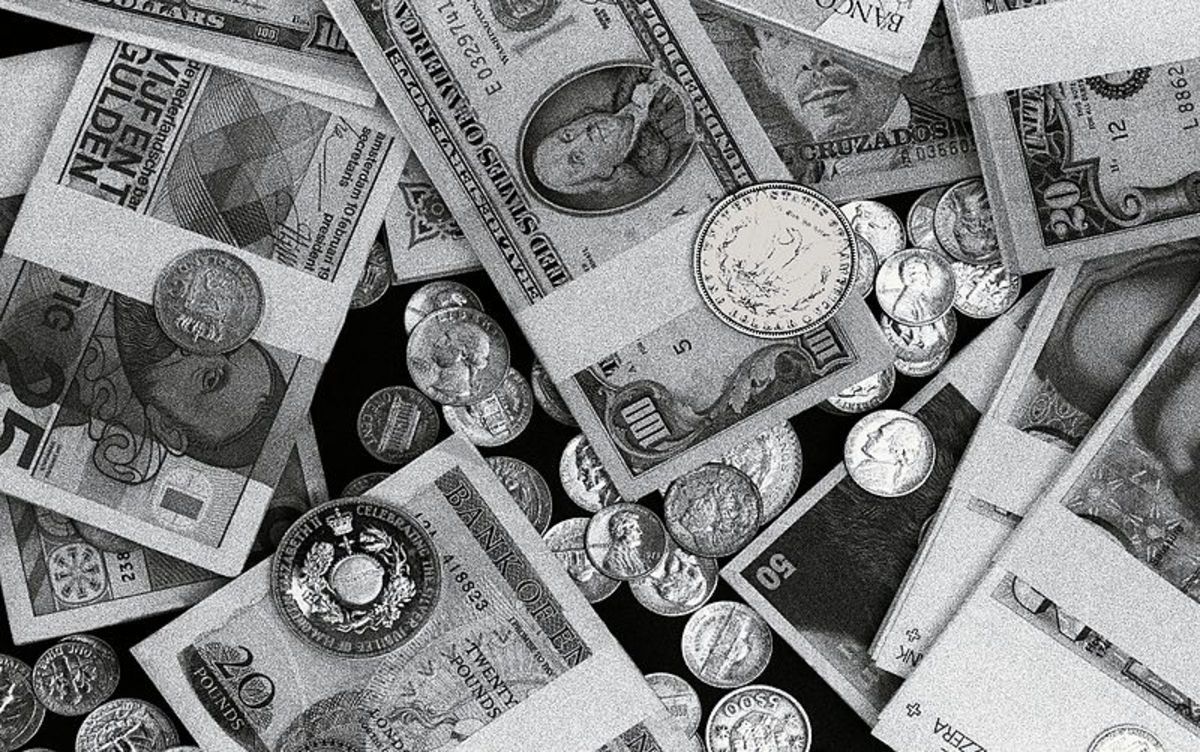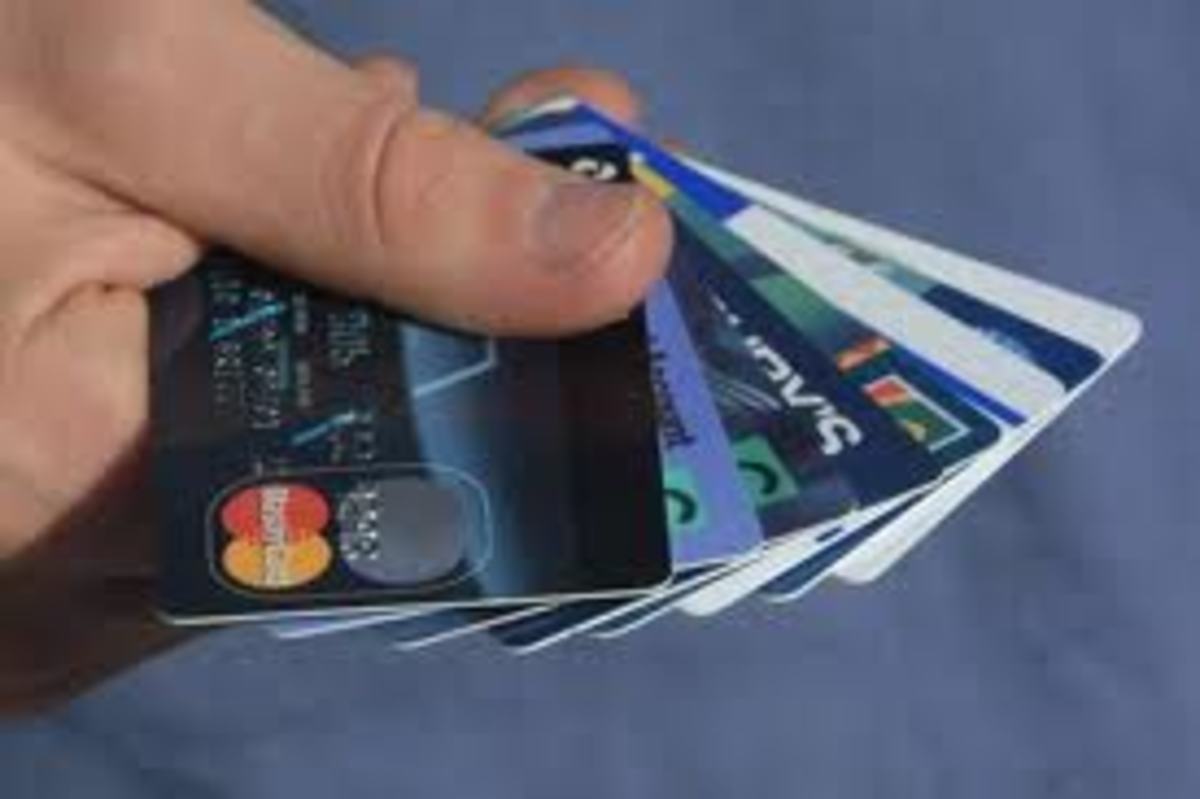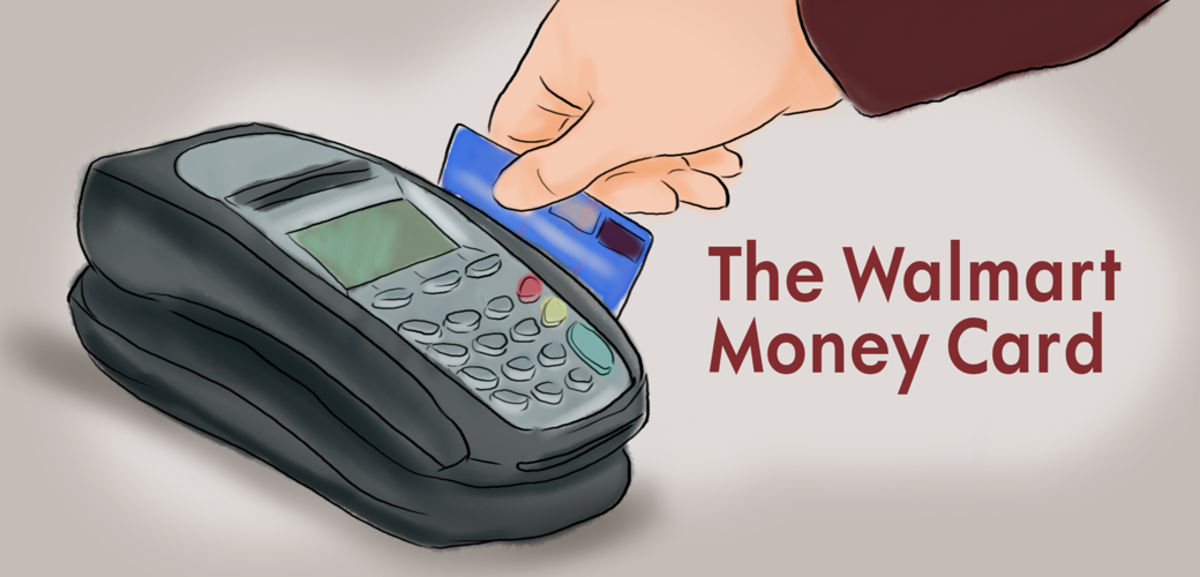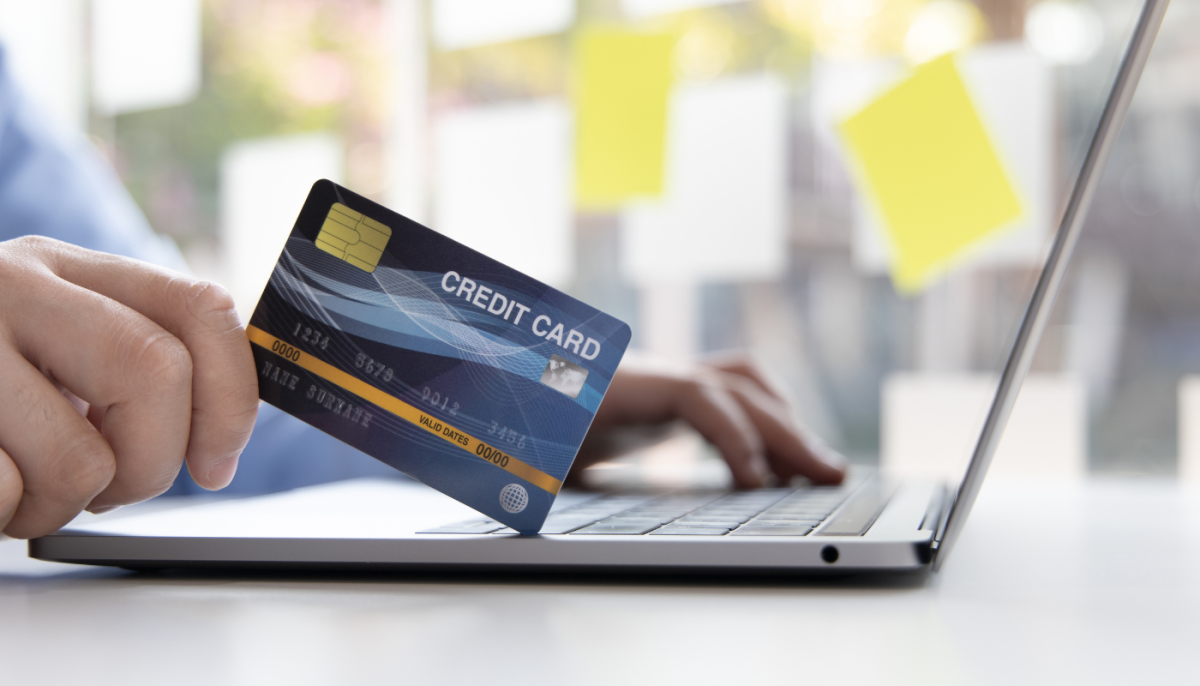20 Reasons to Use Credit Cards Instead of Debit Cards
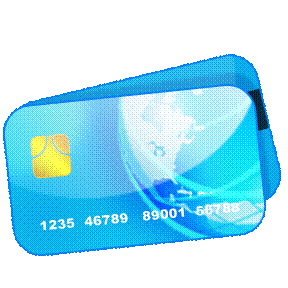
You’re standing in the checkout line. Should you pay using credit or debit?
According to VISA and Mastercard, the majority of people choose debit. Below are 20 reasons why they made the wrong choice.
When you use a credit card, you borrow from the issuer, who then pays the merchant. At month's end, the issuer sends you a statement listing your charges and you repay what you borrowed plus interest. If you pay off the entire amount each month by the due date, you pay no interest.
In contrast, when you use a debit card, the issuer takes the money from your bank account and pays the merchant. You pay no interest since the card is simply used to access your own money.
So, with a credit card you borrow money to make purchases and repay that money at the end of the month, while with a debit card you simply access your own money. Why is it better to charge it?
20 reasons why it’s better to use your credit cards instead of your debit cards:
1. Rewards. The most obvious advantage to using credit cards is you may earn rewards.
Rewards come in various forms like airline miles, “points” to purchase goods or services, or cash. Reward credit cards are readily available. A survey by the Federal Reserve Bank of Boston found 60 percent of consumers have a rewards credit card. Many consumers love to earn miles to buy airline tickets, or points to purchase products. I favor cash rewards. My Blue Cash EverydaySM American Express card pays 3% rewards for grocery purchases, 2% for gas or department store purchases, and 1% for anything else. My Fidelity Investment Rewards VISA card pays 1.5% for every purchase. There are many web articles discussing different credit card reward programs.
In contrast, many debit cards do not offer rewards, or their rewards are small. While banks had been improving their debit card rewards to encourage their use, many of these programs have been made less lucrative or discontinued in response to the Federal Reserve’s lower caps on debit interchange fees which became effective in 2011. For example, while my Citizens Bank debit card had paid 10 cents for each transaction, this reward was terminated November 30, 2011.
2. Float. Most credit cards offer a grace period during which you accrue no interest on purchases if there is no outstanding balance on your card at the time of purchase. The length of this period is typically 20 to 30 days from the end of the billing cycle. If you pay your balance in full each month on or before its due date, you will owe no interest. The float acts as an interest-free loan which, if you make a purchase at the start of your billing cycle, can last as long as 50 to 60 days.
In contrast, you do not benefit from float on debit card purchases. The money for each debit purchase is electronically taken from your bank account at the time of the purchase.
3. Convenience. Credit card and debit card purchases can both be more convenient than cash purchases since you don’t need to worry about having enough cash in your wallet. However, credit card purchases can be more convenient than debit card purchases since you don’t need to worry whether the amount of your purchase exceeds the amount in your bank account. As an example, assume you’d like to purchase a lawnmower for $300. Also assume your checking account contains $100, your savings account contains $500, your credit card has a $3000 limit, and your debit card is linked to your checking account. If you try to use your debit card to make the purchase, you will incur a bank overdraft fee (ranging from $10 to $38), or the transaction will be denied, since the amount of the transaction would exceed the amount in your bank account. In contrast, if you use your credit card, the transaction will occur without a hiccup as long as you remain under your $3000 limit. You will still need to pay the credit card charge when it comes due, but you’ll have the convenience of the float period to accumulate the money needed to pay the bill.
4. On-Line Payments. Credit cards are widely accepted by online merchants, and are often the only acceptable method of paying. By using a credit card for online purchases, you also receive a host of consumer protections that may be helpful if you have a problem with the purchase. These protections include theft and fraud protection (Reason # 11 below), purchase protection (Reason #12 below), and help with resolving disputes with your seller (Reason #14 below). By using a reward credit card, you can also earn a reward (Reason #1 above).
In contrast, most online merchants do not accept debit cards. Even if they do, there are reasons to avoid using a debit card for online purchases. Since the debit card is linked directly to your bank account, the money could be drained from your account before you even realize there’s a problem. Even if you are ultimately successful in proving that the money should not have been taken from your account, it can be difficult to have it actually put back. You also do not benefit from the consumer protections built into credit card transactions.
5. Build Credit History. Your credit card issuer will report your payments to one or more of the three consumer credit companies: Experian; EquiFax and TransUnion. So, by making your payments on time, you'll build and improve your credit scores. Having a good credit record will help you obtain a mortgage, car loan, student loan, etc. at favorable interest rates. (Of course, it’s essential to pay your credit card bill in a timely manner to avoid adverse impacts on your credit score.) Even if you’re in the enviable position of not needing to borrow money, it’s still important to keep a good credit history since companies increasingly use credit scores for diverse reasons such as screening job applicants and setting car insurance rates.
In contrast, debit card transactions are not usually reported to the credit rating agencies. It may seem unfair to penalize people who reliably pay their bills using debit cards, but that’s how it works. There are attempts to encourage the credit rating agencies to consider debit card transactions in their scoring algorithms. For example, Suze Orman’s prepaid debit card (the “Approved MasterCard”) is now reporting its transactions to TransUnion. However, this arrangement is still for research purposes only, and it is currently unknown if TransUnion will end up actually using this information in its credit scoring algorithms.
6. Deposits. If you rent a piece of equipment such as a garden tiller or carpet cleaner, the rental agent may require a hefty deposit. If you use your debit card, you must make sure you have enough money in your checking account to cover this security deposit, and you will lose access to this money. If you use your credit card, you will still have access to the money in your checking account and, after you return the equipment, you won’t have spent anything.
7. Future Travel. If you make hotel reservations for three months from now, you can use your credit card to secure the reservation without having any charges made against your card until your stay. Should you cancel your reservation in accordance with the hotel’s cancellation policy, no charges will be made against your account. On the other hand, if you use your debit card, you’ll lose access to your money since it will be immediately deducted from your account. Should you then cancel your reservation, you’ll need to wait for the money to be put back in.
8. Automatic Recurring Payments. Many people set up automatic recurring payments to pay monthly bills such as utility bills, cable bills, cell phone bills, newspaper subscriptions, etc. If you use your debit card for payment, you’ll need to remember to write these payments into your account register to avoid expensive overdraft charges. You will also need to insure you keep enough money in your checking account to pay these automatic fees as they become due. This level of oversight eliminates many of the benefits of automatic payments.
By setting up automatic recurring payments to your credit card, you can simply wait until you receive your monthly statement to review these charges and then make one payment.
9. Car Rental Loss/Damage Insurance. When you rent a car, the car rental agency will often try to sell you extra insurance coverage such as a loss or collision damage waiver and supplemental liability coverage. Prices vary widely by agency and location, but are often $8 to $35 per day for the loss damage waiver and $8 to $20 per day for supplemental liability. As a result, selling this coverage is a significant profit center for the rental agencies, and they use hard-sell tactics to encourage you to buy them. But accepting these options when you don’t need them can be expensive, with the cost often outweighing the cost of the car rental!
Some credit cards provide car rental coverage which can allow you to decline this coverage and decrease your rental costs. I keep a credit card for the specific purpose of providing car rental coverage to avoid these extra costs. It’s important to review your credit card agreement, and contact your personal car insurance agent and credit card company to ask questions, before declining this extra coverage.
In contrast, debit cards do not generally provide car rental insurance.
10. Price Protection. Many credit card issuers offer price protection which will refund the price difference if you find a lower price on same item from the same manufacturer within a certain time. The procedure to use this protection is spelled out in the credit card agreement.
Debit card issuers generally do not offer this benefit.
11. Theft and Fraud Protection. When you make a purchase with a credit card, you receive protections under the Fair Credit Billing Act. You have no liability for damaged or poor-quality merchandise, or merchandise never delivered. You also have no liability for unauthorized purchases if you report the loss of your card before it’s used, or for unauthorized use of your card if only your credit card number is lost. Further, your maximum liability if your card is stolen and used before you report the loss it is limited to $50, as long as you report the loss promptly. Many credit card companies will even waive the $50 maximum liability. Finally, during the time when the purchase is in dispute, you are not required to pay the amount in dispute and retain access to your money, and you’ll get help resolving the dispute from your credit card company.
Debit card purchases are not covered by the Fair Credit Billing Act, and you will not receive its protections. If your debit card issuer provides zero liability, it is only a feature of the debit card and is subject to change. You do have some protections under federal law if your debit card is stolen, but they depend on how quickly you report the loss. If you report the loss of your card before it’s used, you are not liable for any unauthorized transfers. If you report the loss within 2 business days from when you notice the loss, your liability for unauthorized use is limited to $50. After the 2 business days, your potential liability increases to $500. And if you fail to report the loss within 60 days after your bank statement showing the unauthorized loss is mailed to you, you can lose all the money in your bank account. Further, since the money is taken immediately from your bank account at the time of the unauthorized transfer, it is much more difficult to have the money actually put back into your bank account so you can use it.
12. Purchase Protection. Some credit cards protect eligible purchases against accidental damage or theft for a period of time after their purchase, typically 90 days and up to a certain maximum amount. So if you drop your iPad computer onto a concrete floor a month after you buy it, you’re covered for the loss. Debit cards do not generally provide this protection.
13. Extended Warranty Protection. Credit cards often offer extended warranty protection extending the original manufacturer’s warranty. Some cards double the OEM warranty period.
Debit cards generally do not offer this protection.
14. Resolving Disputes with a Seller. If you have a dispute with your seller and pay using a credit card, the credit card company typically provides a process to resolve the dispute. If you follow this procedure, you can make the credit card company your advocate, and can avoid paying until the dispute is resolved.
If you use your debit card, the money is immediately taken from your bank account and you’ll be on your own in trying to resolve the dispute. You’ll also be out the money you paid unless and until you convince the seller to refund payment. This is a particular problem with internet purchases where the seller may be out of state, or even out of the country.
15. Lost Luggage Protection. Some credit cards protect your luggage if you pay for your common carrier tickets using credit. Debit cards do not generally provide this protection.
16. Holds on Hotel Rooms or Gas. Hotels often place holds on your account to pay for potential charges for room service, telephone calls, internet service, movies, etc. These holds can be several hundred dollars in upscale hotels. These holds have little effect on your credit card account as long as your spending doesn’t approach your spending limit. But if you use a debit card, these holds may wipe out your bank account balance and potentially cause an overdraft. Gas stations also often place holds on your account exceeding your gas purchase.
17. Paying for Reimbursable Expenses. If your employer reimburses you for travel costs, it’s best to use a credit card. By using a credit card, you can submit your expenses and receive your employer’s reimbursement before your credit card payment is due. In contrast, if you use your debit card, you’ll need to effectively loan these funds to your employer from the time you make the purchases until the time you receive the reimbursement.
18. Special Deals. Credit cards provide special deals where you can earn discounts or rebates on certain purchases. For example, my Fidelity Investment Rewards VISA card recently offered 2500 bonus points (worth $37.50 in its 1.5% cash reward program) simply for using the card to pay for a hotel during a three-month period. For another example, my wife and I received $10 theme park admission discounts by using our MasterCard for payment. Special deals such as these are much less common in the world of debit card payments.
19. Emergencies. An important benefit of using credit cards is during emergencies where you may incur large, unplanned expenditures. You can instantly borrow a large sum of money from your credit card without needing to find the time or ability to deposit money into your bank account. For example, if you evacuate during a hurricane, you can use the card to finance your hotel and eating expenses for a few days of emergency out-of-town travel. (It’s a good idea to keep an emergency fund, which you can then use to pay off these expenses.) In contrast, your debit card spending would be limited to the amount in your checking account.
20. Miscellaneous Benefits (Read the Fine Print). It’s amazing what you may learn by closely reading your credit card agreement! You may find using your credit card brings a host of benefits you didn’t know about. You may find you are entitled to roadside assistance, hotel/motel burglary insurance, travel insurance coverage, emergency ticket replacement, free telephone calls, bond coverage, or other benefits. Read the fine print to see the details of what’s covered and how to qualify. In contrast, debit card purchases are simply a means to pay using your money, and they rarely provide similar additional benefits.
The Reality
Despite all of the advantages of using credit cards instead of debit card, statistics show more people use debit cards than credit cards. During 2010, for VISA-branded credit cards, there were 28.6 billion debit card transactions against only 9.4 billion credit card transactions. For MasterCard, there were 8.46 billion debit card transactions against only 5.85 billion credit card transactions. So … why do the majority of people choose the wrong card to make their payments?
One situation in which it makes sense to use a debit card rather than a credit card is when the merchant does not accept credit cards. For example, I use a debit card to purchase groceries at Aldi’s because this store does not accept credit cards, and using a debit card is more convenient than paying with cash.
Another situation in which it makes sense to use a debit card is where the debit card has a special link to a retailer that provides advantages. For example, the REDcard debit card from Target is a special debit card linked directly to your checking account that provides 5% savings on your purchases at Target stores and at www.Target.com.
Many debit card transactions are also made by people who cannot obtain a credit card due to a poor credit history, or a “thin” or no credit history. Other debit card transactions are made by people unable to obtain robust credit cards that provide rewards or other advantages as discussed above. For such people, one financial goal should be to improve their financial situation to the point where they can qualify for a high-quality credit card that provides these rewards and other benefits.
A large number of debit card transactions are made by people who are trying to limit their outstanding credit card debt and avoid its corresponding high interest charges. While this makes sense for some people, it has the unfortunate side effect of denying the advantages of card usage to these people.
Finally, other debit card transactions are made by people who believe such transactions are closer to using cash than credit card transactions since the money is taken immediately from their bank accounts. Unfortunately, these people are missing out on one of the best financial tools available: the credit card.

